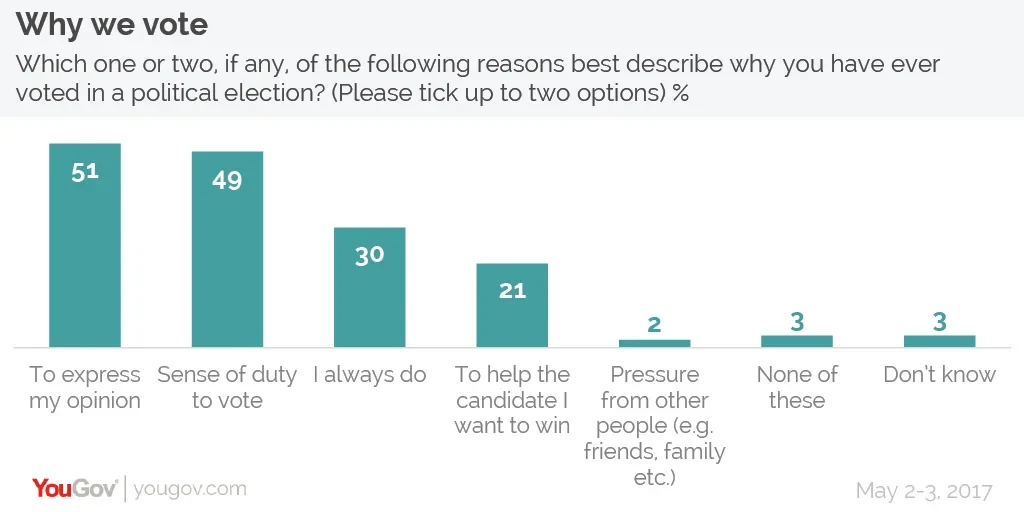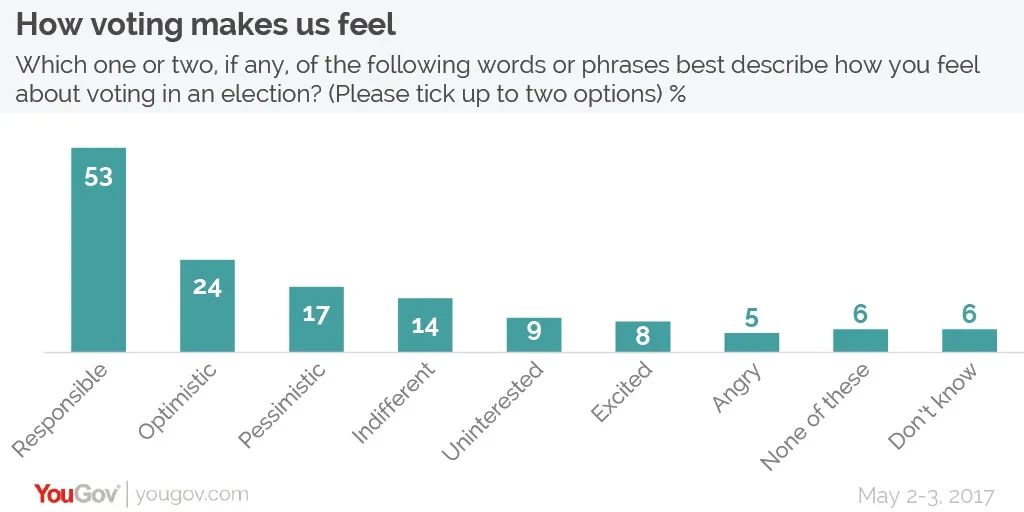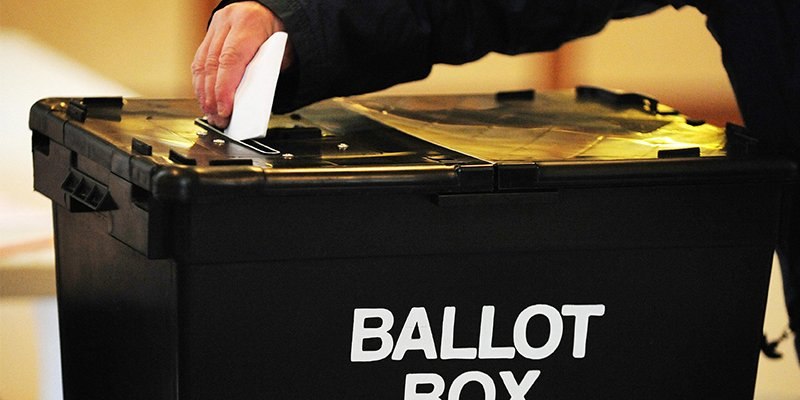New YouGov research looks at the reasons people vote
Amid the noise of the campaign, the rolling news coverage, the publication of manifestos and attack ads, why people actually get out and cast their ballots in general elections is often overlooked. But with just over four weeks to go until the country heads out to vote, we asked about the reasons driving people to their local polling stations.
When asked to give the main two reasons to describe why they vote, the most common answers are “to express their opinion” (51%) and having “a sense of duty” (49%). However, it should be noted that the sense of “duty” has fallen by eight points since we last asked ahead of the 2015 election.
Habit is the next reason, with three in ten Brits (30%) saying they vote because “they always do”, while just one in five (21%) vote in order to help the candidate they want to win.

The research also looked into how casting a ballot makes people feel and it points to a possible slow decline in the proportion of people who feel that voting is a “responsible” thing to do. Although it is still the most common feeling about voting, the proportion of those having a sense of responsibility has fallen from 59% in 2015 to 53% now. Those in the ABC1 bands are ten points more likely to say that voting makes them feel “responsible” compared to those in the C2DE social grades (at 57% and 47% respectively).
The optimism of youth?
Recent YouGov research highlights that age is arguably becoming the defining demographic of British politics – displacing class. It also seems as though it is determines how people feel about voting, too.
Younger people are more likely to feel “excited” about voting than older people. While 5-8% of people aged 25 and over feel this way, this figure increases notably to one in five (20%) 18-24 year-olds, presumably because they are preparing to cast their ballot for the first time.
However, for the most part, under-25s are slightly underwhelmed by the democratic process. For example, they are especially unlikely to say that voting in an election makes them feel “responsible”. Barely a third (34%) of 18-24 year olds feel this way, compared to 69% of people aged 65+.
There are also notable differences by age when it comes to how optimistic/pessimistic they feel about the democratic process. Older Brits are much more likely to describe themselves as feeling “optimistic” about voting in an election (37% of 65+ year olds compared to 18% of 18-24 year olds).
Similarly, Britain’s youngest people were more than twice as likely as their oldest counterparts to say that they felt “pessimistic” about voting (23% vs 10%). These feelings are likely to be a reflection that older people are more optimistic – and younger people more pessimistic – about the prospect of a Conservative victory and we will see how this pans out over the next few weeks.

Photo: PA






